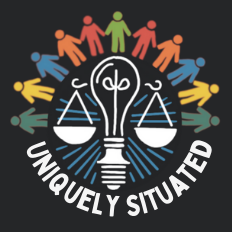Understanding Civic Engagement
Civic engagement is an essential component of a functional democracy, allowing individuals and communities to partake actively in the decision-making processes that affect their lives. At its core, civic engagement encompasses various activities and initiatives aimed at empowering citizens to express their opinions, advocate for their needs, and influence social and political change. It fosters a culture of participation and responsibility, enabling people to play an integral role in shaping the policies and practices that govern their communities.
Several forms of civic engagement exist, each crucial for fostering democratic values. Voting represents one of the most significant avenues through which citizens exercise their rights, ensuring that their voices are heard in the electoral process. However, civic engagement extends beyond mere participation in elections. Community organizing plays a pivotal role by mobilizing individuals around common interests, creating platforms for dialogue and collective action. This form of engagement facilitates grassroots movements that advocate for social issues, effectively challenging existing power structures.
Moreover, policy advocacy is another vital aspect of civic engagement, enabling individuals and organizations to lobby for legislative changes that promote social justice and reform—particularly in areas like criminal justice. Nonprofit organizations play a critical role in educating the public on these various avenues of engagement. By providing resources, training, and support, they empower citizens to become informed participants capable of navigating complex social issues.
Through workshops, seminars, and outreach initiatives, these organizations illustrate the importance of knowledgeable participation in ensuring the democratic process is accessible to all. As individuals become informed about their rights and the mechanics of civic engagement, they are better equipped to influence policies that affect their communities, especially in the context of the criminal justice system. The role of education in this process cannot be overstated; informed citizens are key to fostering a just and equitable society.
Fighting for Criminal Justice Reform
The urgent need for criminal justice reform remains a critical concern within our society. The current state of the criminal justice system highlights numerous systemic issues, including ineffective sentencing laws, problematic police practices, and inadequate rehabilitation programs. These factors contribute to over-incarceration and disproportionately affect marginalized communities, necessitating a concerted effort for meaningful change. Nonprofit organizations emerge as pivotal players in this arena, engaging communities and advocating for reforms that ensure justice and equity.
Many nonprofit initiatives focus on educating citizens about their rights within the criminal justice framework. By providing resources and training, these organizations empower individuals to understand the legal processes that govern their interactions with law enforcement and the judicial system. Workshops, seminars, and community outreach programs are vital tools that foster awareness and encourage advocacy among residents, ultimately aiming to equip them with the knowledge needed to challenge injustices.
Specific initiatives led by nonprofits have demonstrated efficacy in driving criminal justice reform. For instance, campaigns that target discriminatory sentencing laws have successfully mobilized community members to advocate for legislative changes. By organizing petitions, town halls, and rallies, these nonprofits facilitate a collective voice that resonates with policymakers, bringing the urgent need for reform to the forefront. Furthermore, programs designed to improve police-community relations have fostered dialogue and understanding, contributing to essential changes in local law enforcement practices.
Real-life case studies exemplify the transformative power of community engagement. For instance, initiatives that highlight successful rehabilitation programs showcase how investing in second chances can significantly reduce recidivism rates. By sharing stories of individuals who have benefited from these programs, nonprofits not only illuminate the issues at hand but also inspire others to join the movement for reform. Such collaborative efforts are vital in creating a more equitable criminal justice system that prioritizes fairness and rehabilitation over punitive measures.
